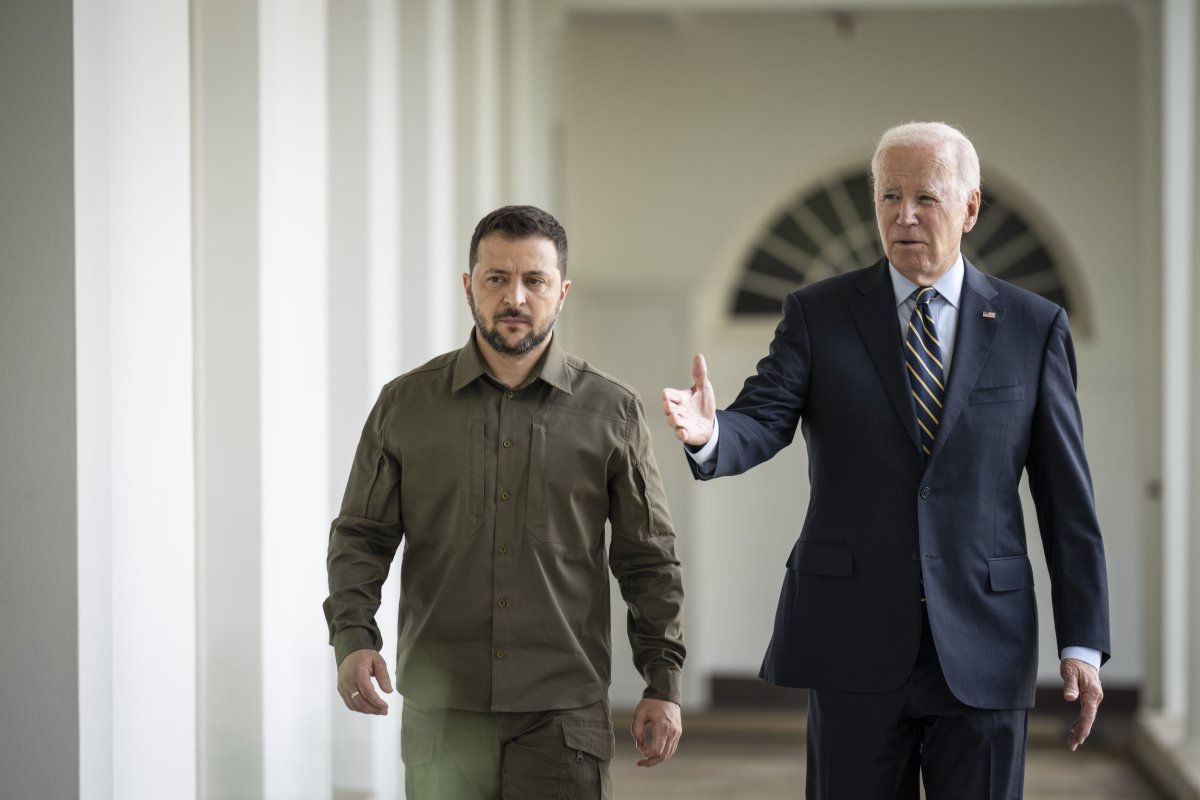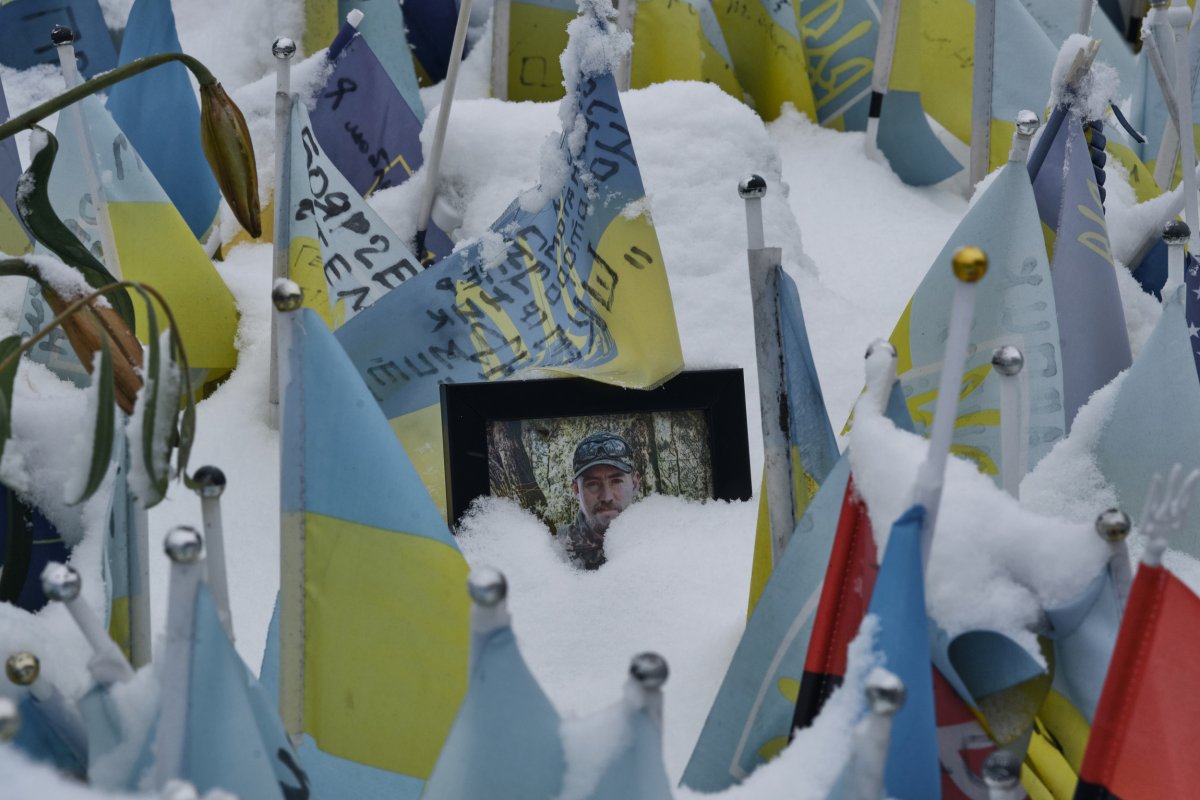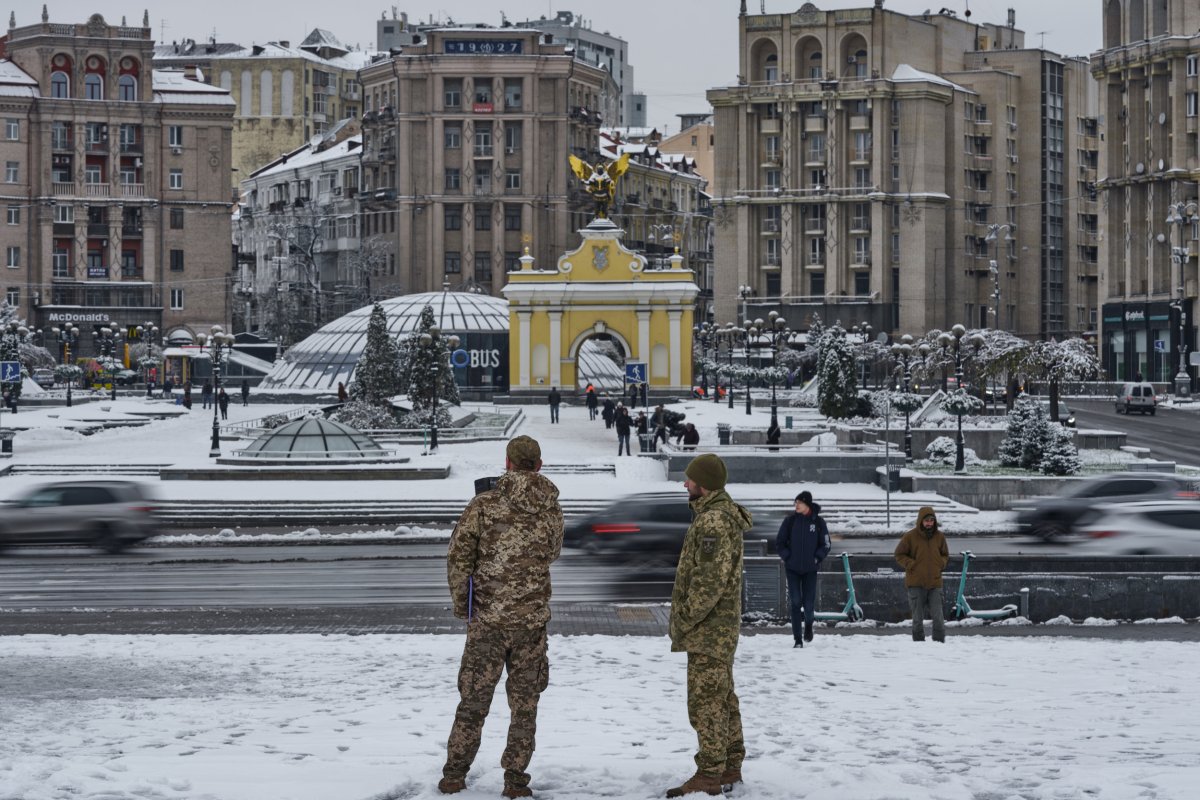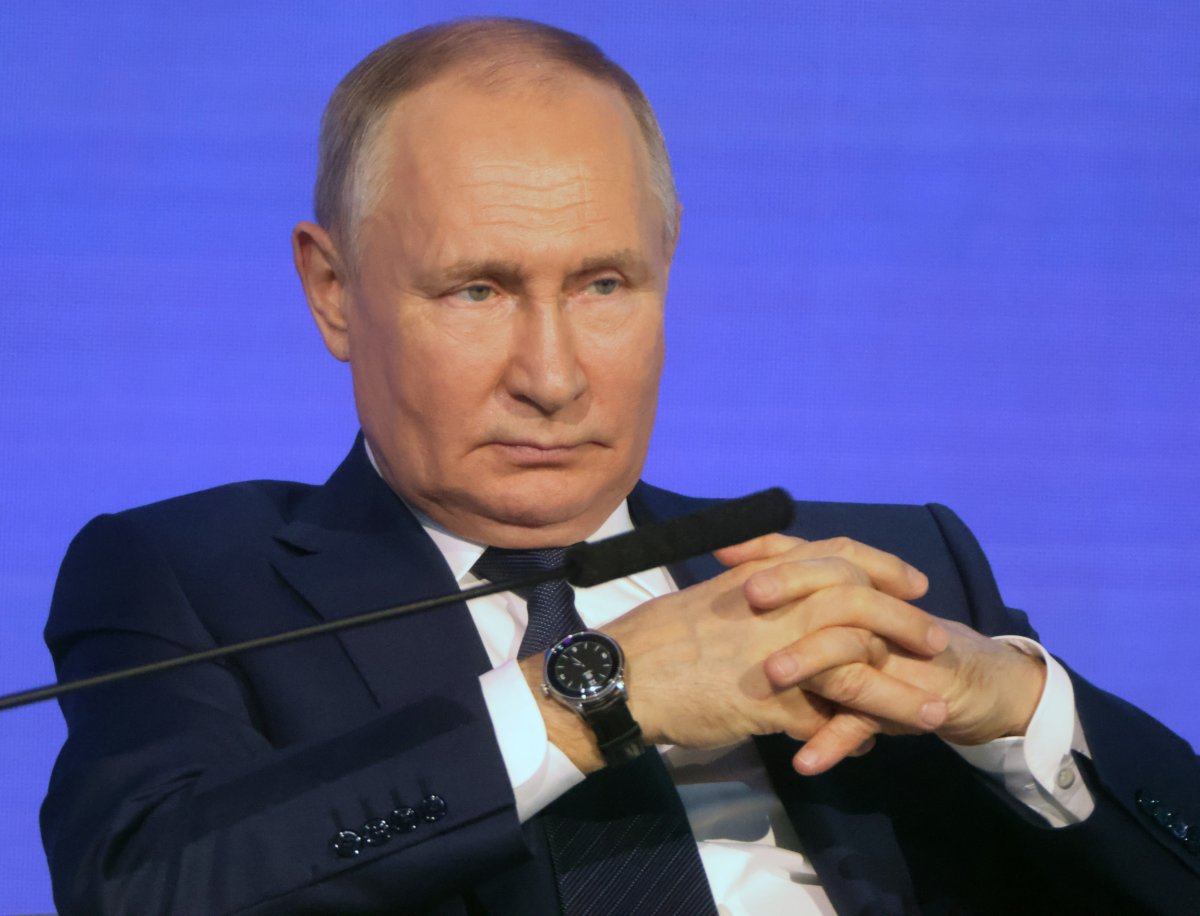David Brennan
Ukraine's 2023 fighting season is drawing to a close under a cloud of unmet expectations. Its soldiers and citizens, who are steeling themselves for a Russian winter blitz, will not be warmed by the memories of summer success, Kyiv's long-awaited counteroffensive operation having failed to achieve the breakthrough needed to collapse Moscow's occupation of the south of the country.
President Volodymyr Zelensky and top commander General Valerii Zaluzhnyi have admitted Ukraine's shortcomings. "There will most likely be no deep and beautiful breakthrough," Zaluzhnyi said in an interview with The Economist earlier this month. Zelensky, meanwhile, told citizens that "all attention should be focused on defense."
As Kyiv works to maintain its Western coalition, stress fractures are forming. In Europe, a wave of right-wing populism threatens to derail the continent's political establishment, while in the U.S. President Joe Biden is heading into a fierce re-election contest with a Republican Party cowed by former President Donald Trump and shifting into open Ukraine-skepticism.
A common refrain since February 2022 is that the U.S. is giving Ukraine enough military aid to survive, but not enough to win. In this telling, Washington, D.C. fears that a strategic Kremlin defeat in Ukraine could prompt chaos within Russian borders, perhaps the unseating of President Vladimir Putin, and a vicious regional struggle to fill a power vacuum littered with weapons of mass destruction. With the China challenge looming, Eurasian anarchy would pose many new problems for the White House.

Ukrainian President Volodymyr Zelensky and U.S. President Joe Biden walk to the Oval Office of the White House September 21, 2023. Biden has tied his presidency closely to Ukrainian victory.
Zelensky appears to be feeling the pinch. "The Ukrainians do see continued hesitancy and this mindset of worrying about escalation, not provoking the Russians in some sort of way," Daniel Vajdich—president of Yorktown Solutions and one of Ukraine's most prominent lobbyists in Washington, D.C.—told Newsweek.
"On the implementation side, there's a whole lot of continued caution that raises real questions in Kyiv about whether there is a desire for the Ukrainians to truly defeat the Russians. And the conclusion is 'no'.
"The Ukrainians believe that despite all the assistance, despite the fact that the administration is doing so much, there is still so much caution because there is not a desire for the Ukrainians to decisively defeat the Russians, thinking that this would really lead to internal turmoil and collapse in Russia."
Newsweek has contacted Zelensky's office and the White House by email to request comment.
'Failure Is an Orphan'
American and allied Western officials have been privately critical of Ukraine's offensive approach. The New York Times reported in August that U.S. planners felt Kyiv's attacking forces were too spread out along the 600-mile front, failing to concentrate enough firepower in one spot to punch through.
But for many Ukrainians, the U.S. bears some responsibility for the as-yet underwhelming counteroffensive. "I'm grateful to the U.S. as the leaders of our support," Zelensky told CNN in July. "I told them as well as the European leaders that we would like to start our counteroffensive earlier, and we need all the weapons and materiel for that. Why? Simply because if we start later, it will go slower."
Vajdich said this sentiment is still strong in Kyiv. "It is an empirical fact that a lot of the assistance has not gotten to the Ukrainians as quickly it as it could have," he said. "There are supply chain issues, there's no doubt about that. But there's also a portion of this assistance, both qualitatively and quantitatively, that could have gotten to the Ukrainians a lot earlier.
"It had a decisive impact in terms of the situation on the ground...the spring offensive this year would have been a spring offensive and not a July offensive, which made all the difference. It allowed the Russians to literally entrench themselves and fortify their defenses."
Kyiv has had to fight hard for every new NATO weapons system. The first American-made main battle tanks had arrived in Ukraine as of October, more than 18 months since Russian armored columns rolled across Ukrainian frontiers. Kyiv is still pushing for the longest-range version of the MGM-140 Army Tactical Missile System—known as the ATACMS, and U.S.-made F-16 fighter jets will not expected to arrive until early 2024.

Flags on Independence Square, each honouring a soldier lost in the war, after fresh snowfall in Kyiv, Ukraine, on November 22, 2023. Ukraine is thought to have suffered more than 100,000 casualties in its war with Russia.
Ukraine is fighting a war of national survival. Biden and other Western leaders, though, have been clear that the Western coalition is charged with global survival. "We have not faced the prospect of Armageddon since Kennedy and the Cuban Missile Crisis," Biden said in October 2022.
The White House has favored a graduated approach to military aid for Kyiv. Too much too soon, officials have warned, could prompt dangerous escalation from the Russian side. Western partners have also cited the need for strategic ambiguity and the element of surprise. Actual strikes on Russian positions have often been the first sign that Ukraine has received certain NATO weapon systems.
But step-by-step Western aid has sown frustration nonetheless. Steven Moore—once a chief of staff for former chief deputy GOP whip Rep. Pete Roskam (R-IL), and now running Ukraine Freedom Project in Kyiv—told Newsweek: "Ukrainians view themselves as our partners in taking out a long-held American adversary in Russia."
"We supply the weapons, they supply the lives of their very best people," Moore said. "The Ukrainians aren't getting the weapons that we promised nor are they getting the weapons that they need."
America's Inflection Point
Some hope the onset of winter and the relatively static front may facilitate fresh peace negotiations. Putin has repeatedly said he is open to revived talks, though only on the condition that Ukraine accepts the "new territorial realities" of Moscow's occupation of around 20 percent of Kyiv's territory.
Zelensky has refused talks on Russian terms, and disputed suggestions that the war has become a stalemate. "A few military tricks, and you remember, the Kharkiv region was liberated," he said this month, referring to the surprise counteroffensive success in northeastern Ukraine in fall 2022.
"We have no right to give up. What's the alternative? What, we need to give away a third of our state? This will only be the beginning. We know what a frozen conflict is, we have already drawn conclusions for ourselves. We need to work more with air defense partners, unblock the sky, give our fighters the opportunity to carry out offensive actions."
Zelensky denied any pressure from Western partners to go back to the negotiating table. Vajdich said he too sees no coercion. "But if it did exist, or if this is what some Western leaders are thinking without acting on it, what they need to do is not convince President Zelensky, they need to convince the Ukrainian people," he said, noting sustained public support for full liberation of the country.
An unpopular peace proposal may spell the end of Zelensky's stint in office, "with an election or without an election," Vajdich added.
Ukraine cannot continue its war without Western—and especially U.S.—support. Richard Haass and Charles Kupchan of the Council on Foreign Relations think tank wrote this month in Foreign Affairs that the looming winter and disappointing Ukrainian summer push "necessitate a comprehensive reappraisal of the current strategy that Ukraine and its partners are pursuing."
Both told Newsweek that neither the U.S. nor Ukraine has yet reached that point. "That broader public debate is overdue and is necessary," Kupchan said. "We've been in a political environment in which having this kind of conversation has been almost taboo."
"It's a dangerous situation to be in," he added. "That's how wars go on endlessly. Good strategy is about not just what's desirable, but also what's possible."
Haass proposed "an interim definition of success," one that pauses rather than abandons the goal of full territorial liberation. "It might have to wait years or even decades to accomplish the larger definition of success," he explained. "That would probably have to wait on the emergence of a post-Putin leadership, or a post-post-Putin leadership."
Full liberation is "unlikely to be achievable given the military balance," Haass said. "We've now had two fighting seasons. I don't see a basis for saying if you had a third, or a fourth, or fifth Ukraine would be able to realize that goal."
"I think it is essential for Ukraine survive that Russia be frustrated. And the current situation I would describe as a strategic victory for Ukraine and the West. It's not everything, but it's a lot. And it doesn't rule out more down the road."
The Biden administration shows no sign of breaking with Kyiv, despite the difficult environment almost two years after Russia's full-scale invasion. "The Biden administration finds itself in something of a dilemma," Haass said.
There are some "who are sympathetic to what I've just articulated, but don't want the Biden administration to be seen to be at cross purposes with Ukraine," he added.

Two Ukrainian soldiers in Maidan Square, Kyiv, Ukraine, on November 22, 2023. The country is bracing for a tough winter after a summer-fall of underwhelming battlefield progress.
"It's always an awkward topic when you disagree with an ally with about policy aims," Haass said, warning that the broader geopolitical trends are not necessarily in Ukraine's favor. "I would argue we should do this now from a position of strength, and I would argue Ukraine should do it now from a position of strength."
The sense in D.C., Kupchan said, is that "Zelensky is not ready to begin to pivot to a strategy aimed at ending the war. If the Ukrainians are not ready for this conversation, then the West is not going to foist it upon them."
"My guess is that behind closed doors there is a conversation about how to end the war, and about a set of feasible war aims, and about the role of diplomacy," he added. "But I don't think you're going to see that conversation go public until the there is a sense that the Ukrainians themselves are ready to have that conversation."
"It's inevitable that Ukrainians themselves begin to address the question of 'what do we do now?'" Kupchan said. "Perhaps, at some point, it makes more sense for Ukraine to invest the resources that it's getting from the West into the defense and reconstruction of the 82 percent of Ukraine under Kyiv's control."
Post-Putin Planning
Ukrainians will not look kindly on Western partners urging what amounts to surrender, even if only in the short term. Kyiv is believed to have sustained more than 100,000 casualties in nearly two years of fighting, and tens of thousands more in the lower intensity war with Moscow and its separatist puppets since 2014.
Ukrainians are scarred by the collective Western failure to hold Putin to account in 2014, or to deliver on the security assurances given to Ukraine in the 1997 Budapest Memorandum, under which Kyiv surrendered its Soviet-era nuclear weapons. Few Ukrainians want to allow the Russian dictator to keep the spoils of another round of aggression.

Vladimir Putin in Moscow, Russia, on November 24, 2023. The Russian president appears to be waiting out Ukraine and its Western partners.
Growing Western discomfort is clear to Ukrainians. "Maybe it's a sign for us, for Ukrainians that we have to discuss a few more options of how to stop this war, not only to reach our borders of 1991—now, it's very difficult to achieve it," Ivan Stupak—a former officer in the Security Service of Ukraine and now an adviser to the Ukrainian parliament's national security, defense and intelligence committee—told Newsweek. "Maybe [there is] a middle point."
But the lack of trust between the two sides remains a serious problem. "Russians never kept their promises," Stupak said. "How do we force the Russian Federation to keep their word?"
Kupchan acknowledged that the "downside" of his proposed approach "is that you let, at least for now, Russia get away with a blatant act of aggression and territorial conquest. And that sends a terrible message to the world about the rule of law and the sanctity of sovereignty."
Still, he added, not all is well for the Kremlin. "Russia has already been dealt a profound strategic defeat," Kupchan said. "Putin has lost Ukraine. We know that. And now the question is whether he going to get a consolation prize by holding on to some percentage of Ukrainian territory."
Both Haass and Kupchan were part of a group that reportedly took part in back-channel talks with Russian Foreign Minister Sergei Lavrov earlier this year. "I think, at the moment, the Russian conversation is based on the assumption that things are going their way politically," Haass said.
"They see the populist trends, they see the polls in the United States. I think Putin strategy boils down to, 'Let's see where things stand in a year,'" he added. "I assume he's lighting candles for a Trump victory."
Kupchan said Ukraine and the West should, like Putin, consider "the long game."
"You get the fighting to end, you get Ukraine back on the path of prosperity, and then you wait Putin out, and you hope for a day when at the negotiating table Russia gives Ukraine back its territory.
"Is that outcome in sight? No. But how many people in 1985 believed that Estonia, Lithuania and Latvia would be independent democracies and members of NATO? Nobody.
"Everyone talks about Putin waiting out Ukraine and the West. I think we turn the tables. We out-wait him."
No comments:
Post a Comment